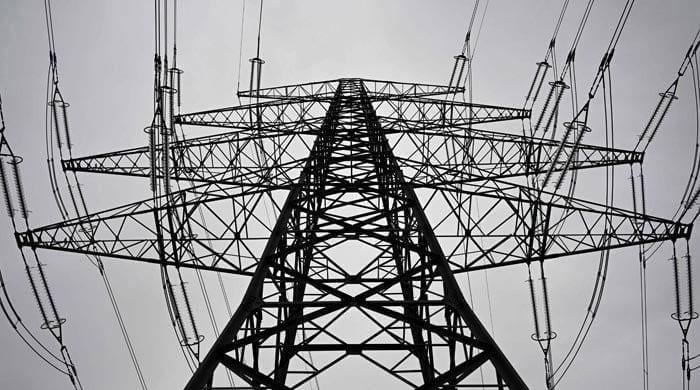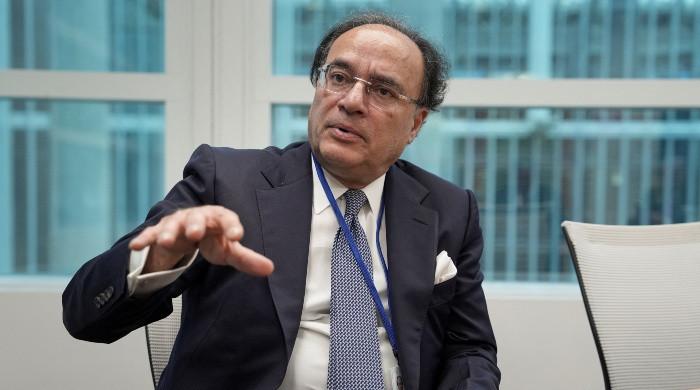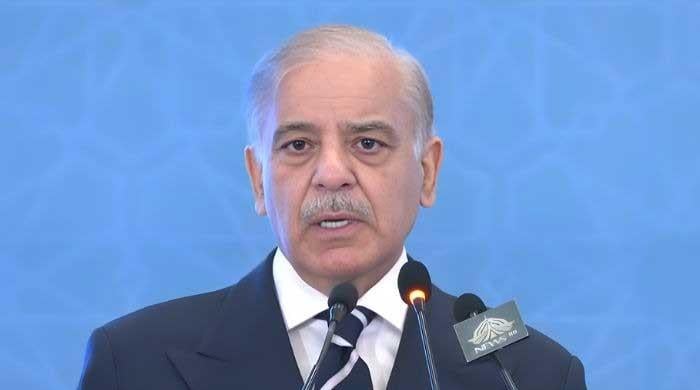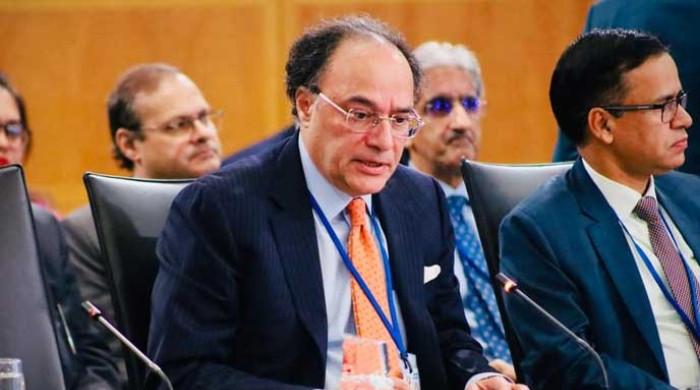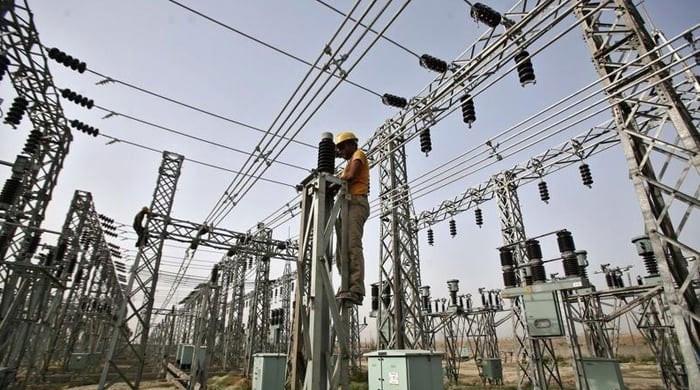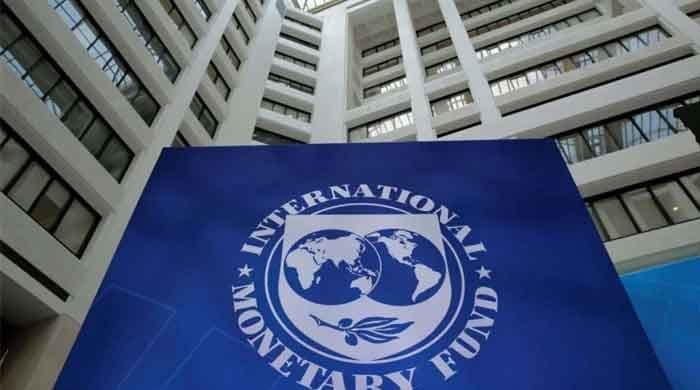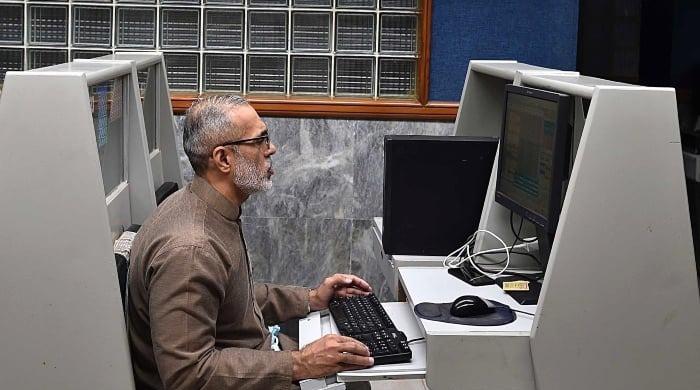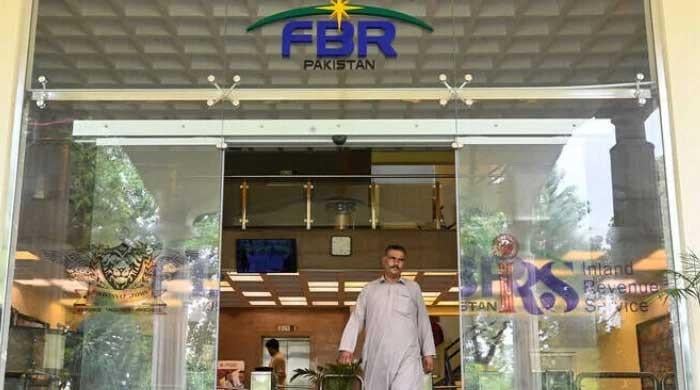Pakistan in talks with IMF for additional $1.4bn amid coronavirus crisis: Hafeez Shaikh
Economic Affairs Minister Hammad Azhar says Pakistan welcomes statement calling for suspension of developing countries' debt payments
March 25, 2020
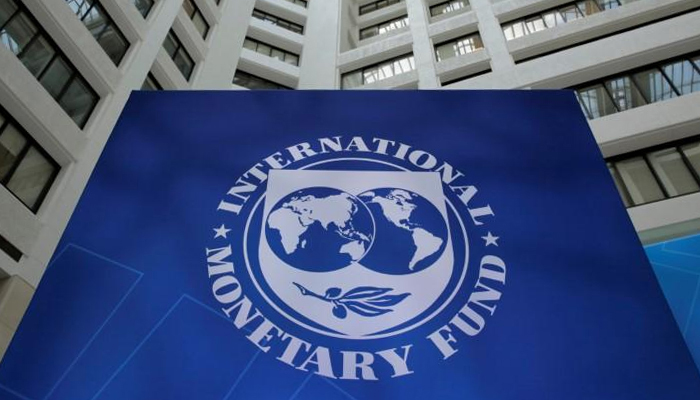
ISLAMABAD: Pakistan is in talks with the International Monetary Fund (IMF) for an additional sum of $1.4 billion owing to the ongoing coronavirus crisis, Adviser to the Prime Minister on Finance Dr Abdul Hafeez Shaikh announced on Wednesday.
"This sum [of additional money] is separate from the current programme", Dr Shaikh said, referring to the ongoing three-year Extended Fund Facility (EFF) worth $6 billion. Pakistan's economy was growing stronger but the COVID-19 pandemic was expected to dent it considerably, he added.
Remittances were likely to fall, as was the tax collection, and a slowdown in the economic activity throughout the country was imminent, the adviser said in a press conference here in the federal capital.
The government has, however, already announced a Rs1.2-trillion economic and financial relief package to ward off the negative impact of the coronavirus, he said. It has further earmarked Rs200 billion for the labourers who would face extraordinary difficulties in the wake of nationwide lockdowns to contain COVID-19.
"We have to save our own people first. If someone loses their job, they can be given more money than that," he said.
"We will immediately release tax refunds worth Rs100 billion to the export industry," Dr Shaikh added, noting that another Rs100 billion was set aside for the small- and medium-sized enterprises (SMEs) and agricultural sector.
"There would a reduction in the prices of fertilisers and we will also help subsidise through other ways," he said, adding that smalls businesses would be granted loans and interest rate on loans cut down.
The government was going to provide financial assistance to almost 12 million people, whereas at the moment, the number is five million, he said. They would be given Rs3,000 a month.
In order to bring down the prices of food and beverages, Dr Shaikh said the Utility Stores Corporation of Pakistan (USC) would be offered Rs50 billion. He also mentioned that the government intended to buy 8.2 million tonnes' worth of produce from the farmers, helping the money flow to them.
Petroleum prices have been slashed by Rs15 a litre, the adviser said, adding that they would be kept at the same level for the next three months.
"We're giving Rs25 billion to the NDMA [National Disaster Management Authority] and we will give them more should the need arise," he said. "We will also set up another fund of Rs100 billion."
Dr Shaikh noted that the SBP had cut the policy rate by 2.25% and said he wished for the Public Sector Development Program (PSDP) to continue rapidly.
"We are also going to do away with the CVT [capital value tax]," he said. "Pakistan received $350 million from the ADB [Asian Development Bank] and we will take another $900 million in June," he added.
Separately, Adviser to the Prime Minister on Commerce, Textile, Industries and Production and Investment, Abdul Razak Dawood, said there were many industries that would not shut down in just a day.
"Tomorrow, it will be clear as to who needs to be set straight," Dawood added. "There are at least 25 orders that cannot be cancelled. There was a case yesterday when rice exporters' [delivery] trucks were stopped."
'Suspend debt payments'
Economic Affairs Minister Hammad Azhar said Pakistan welcomed a new statement by the World Bank (WB) and IMF "calling upon G20 countries to suspend debt payments of [developing] countries".
"PM Imran Khan has been urging this since COVID-19 pandemic. We hope it shall be accepted & we also urge multi-laterals for relief on their debts," he added.
In a joint statement, the two international organisations called on "all official bilateral creditors to suspend debt payments from IDA [International Development Association borrowing] countries that request forbearance".
The statement added that such a suspension would allow the developing countries to address their "immediate liquidity needs" and for the G20 nations to make "an assessment of the crisis impact and financing needs for each country".
"We will seek endorsement for the Proposal at the Development Committee during the Spring Meetings (April 16–17)," the statement read.
A "global sense of relief for developing countries as well as a strong signal to financial markets" was crucial given how the coronavirus pandemic was "likely to have severe economic and social consequences for IDA countries".




